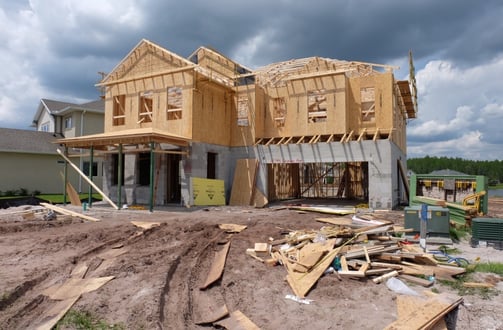ABCs of Construction Loans
By taking advantage of a construction loan, even the average consumer can build their dream home.
Bronic Roberts
9/25/20232 min read


Building a home might sound like something reserved for the rich and famous, but the truth is, it might be easier than you think to get a construction loan.
What is a construction loan?
Construction loans are short-term, higher-interest-rate mortgages that cover the cost of building or renovating a home. The buyer qualifies for the final mortgage and the lender pays the contractor for cost on a pre-approved schedule. Once the construction is complete, the loan is converted into a traditional home loan.
Type of Construction Loans
Construction to Permanent – Converts to a permanent loan with the interest rate locked in at closing.
Construction Only – Must be paid off when construction is complete, so the borrower will then need to get new financing.
Renovation Construction Loan – Cost of renovations are included in the original mortgage based on the value of the home after the repairs or upgrades. Best used for buying a fixer-upper property.
What’s included in the loan?
The construction loan generally pays for:
Labor and materials
Plans, permits, fees
Contingency reserves to allow for changes and delays
And sometimes land. This depends on the specific loan product from whichever lender you're working with.
Can I qualify?
All mortgages have minimum qualifications for approval. Construction loans are riskier for the lender because there is no existing collateral in the form of the home. Along with typical requirements for debt-to-income limits and FICO score minimums, the lender will often ask for a higher down payment (30% is typical) and a plan to pay off the loan at the end of the project (proof of cash or loan). Additionally, lenders will have different requirements in regard to the contractor you work with. Many lenders will maintain a roster of "approved builders" whose work they are comfortable lending on. Work history, experience, reputation, and length of time in business will all play a factor in a builder/contractor being approved. And no, no lender will provide construction funds to a homeowner acting as their own general contractor unless they are in fact, a licensed general contractor. The bank wants a professional contractor who can legally pull complete permits and has proven they are capable of finishing a project.
Building from scratch offers many benefits to the homeowner. The blank slate is appealing. By taking advantage of a construction loan, even the average consumer can build their dream home.